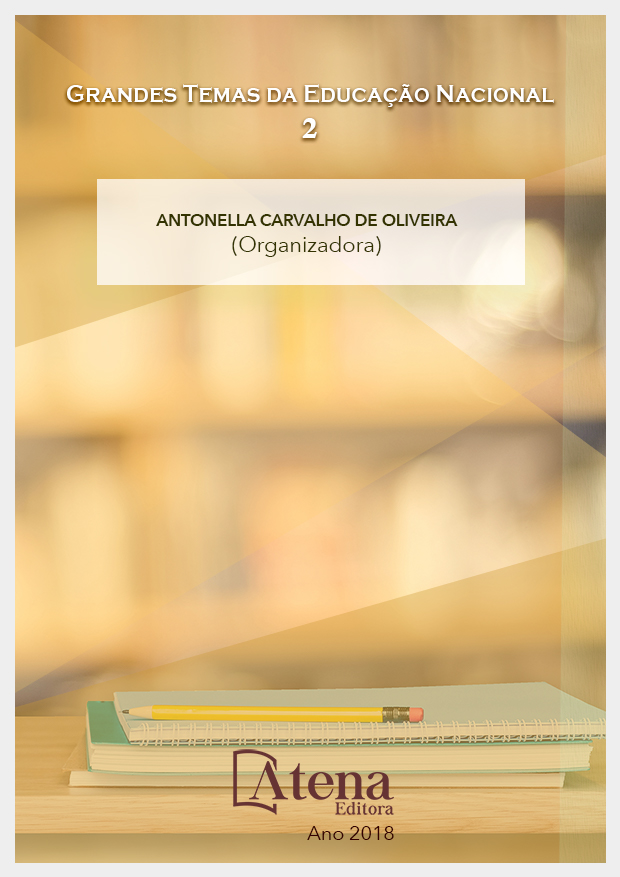
REFLEXÕES EDUCOMUNICATIVAS SOBRE CINEMA E MÍDIA NA FORMAÇÃO INICIAL DE PROFESSORES
Entre suas atribuições, a escola tem
como função proporcionar a fruição, a reflexão
e a criatividade por meio das linguagens
artísticas e seus signos, sob o fundamento
da liberdade em divulgar a cultura, a arte e
o saber. Após a promulgação da lei 13.006
de 2014 sobre a obrigatoriedade da exibição
de duas horas mensais de filmes nacionais
nas escolas de educação básica, tornouse fundamental pensar sobre as atribuições
escolares e sobre o espaço que se abre para o
cinema na instituição. Decorrente disso, como
articular essa demanda ao papel dos cursos de
formação inicial de professores? Como alia-la
aos desafios de um trabalho escolar relativo às
mídias e às tecnologias? Acredita-se que estes
espaços necessitam contemplar as mídias, as
tecnologias e as linguagens artísticas enquanto
meio e objeto de estudos na formação do
professor reflexivo, ao passo que saiba fruir das
linguagens artísticas como visões distintas do
mundo. Assim, o cinema pode ser meio e fim de
propostas que tratem das linguagens artísticas,
da crítica, da reflexão e ações conscientes da
formação de sujeitos autônomos. Para tanto, a
perspectiva da Educomunicação pode ser muito
interessante, uma vez que ela visa, entre outros
aspectos, favorecer a ação crítica e criativa
dos sujeitos diante das referências midiáticas.
Esse artigo, portanto, relaciona cinema e
educação com e para as mídias à formação
inicial de professores sob a perspectiva da
Educomunicação.
REFLEXÕES EDUCOMUNICATIVAS SOBRE CINEMA E MÍDIA NA FORMAÇÃO INICIAL DE PROFESSORES
-
DOI: Atena
-
Palavras-chave: Cinema. Mídia. Educomunicação. Formação de Professores.
-
Keywords: Cinema. Media. Educommunication. Teachers Formation.
-
Abstract:
Betwenn its assignments, the
school’s task is to provide fruition, reflection and
creativity through artistic languages and their
signs, based on freedom to spread culture, art
and knowledge. After the promulgation of the law
13.006 of 2014 about the obligation to exhibit two
hours of national films monthly in elementary’s
and secundary’s schools, it became fundamental
to think about the school assignments and also
about the space that opens for the cinema in the
institution. How to articulate this demand to the
role of teachers graduation? How do link it to the
challenges of school work about media? These spaces needs to contemplate the communications and media, the technologies and
the artistic languages as a means and object of studies in the formation of the reflective
teacher, at the same time being able to enjoy the artistic languages as distinct visions
of the world. Therefore, cinema can be the means and end of proposals that deal
with artistic languages, criticism, reflection and conscious actions of the autonomous
subjects formation. For this, the perspective of Educommunication can be very
interesting, since it aims, among other aspects, to favor the critical and creative action
of the subjects before the media references. This article, as soom, relates cinema and
education with and for the media to the teachers graduation from the perspective of
Educommunication.
-
Número de páginas: 15
- Bruna Donato Reche


